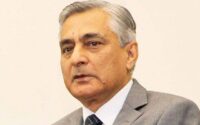MAINTAINING BEARD BY A MEMBER OF DISCIPLINED FORCE MAY NOT BE PROTECTED UNDER ARTICLE 25-ALLAHABAD HIGH COURT
This article is written by – A.SivaSangari, from, VIT Chennai
Case: State Of U.P.Thru.Prin.Secy. Home &Ors.
FACTS OF THE CASE:
This case has relied upon two writ petitions. By way of the first writ petition, the applicant attacked the Circular 26.10.2020 issued by the Director-General of Police, U.P., Lucknow from which guidelines have been issued for the dignity of wearing a proper uniform and appropriate appearance for a member of the disciplined forces. The applicant also attacked the suspension letter dated 05.11.2020 passed by the Deputy Inspector General of Police / Superintendent Chief of Police, Ayodhya (Faizabad) where the applicant has been placed under suspension in consideration of the department’s investigation because despite the applicant being a member of the disciplinary body, he keeps his beard and even after receiving the notification from the higher officials, he didn’t shave his beard. The applicant also attacked the order dated 13.11.2020 passed by the Deputy Inspector General of Police / Chief Superintendent of Police, Ayodhya (Faizabad) whereby he declined the application which was given by the applicant dated 03.11.2020 where the applicant sought permission to keep his beard as per Islamic religious beliefs. While with the Second writ petition, the applicant attacked the indictment dated 29.07.2021 issued by the Superintendent of Police (Rural Area), Ayodhya (Faizabad) contained as Annexure No.04 in the application for the document. As the facts of both cases are common, therefore, both of these cases are taken by common decision/order.
ISSUES BEFORE COURT:
Whether non-shaving of the beard by a disciplinary body protected under art 25 and 26 of the constitution?
RULES APPLICABLE:
- ART 25-FREEDOM OF RELIGION
Article 25 of the Constitution guarantees freedom of religion for all Indians. It provides that all Indians, by social order, morality, health, and other provisions:
- They have an equal right to freedom of conscience and they have the right to profess, practice, and propagate the religion.
- It further states that this article will not affect any existing law and will not prevent the state from enacting any law relating to:
- Control or prohibition of any economic, financial, political, or other secular activity associated with religious practice.
- Provide social welfare and transformation.
- The opening of Hindu religious institutions of public character for all classes and stages of Hinduism.
- ART 26-FREEDOM TO MANAGE RELIGIOUS AFFAIRS
Article 26 (subject to public order, morality, and health) provides the right to any religious system or to any part of that religion:
- Establish and maintain institutions for religious and charitable purposes;
- Managing its affairs concerning religion;
- Possession of goods (movement and motion);
- Managing property under the law.
COURT’S OBSERVATIONS:
Initially, the Court recognized that this being a domain of a competent authority to issue guidelines regarding the wearing of appropriate uniforms and to maintain the proper appearance of members of the armed forces so “No disruption should be made, as, maintaining and wearing appropriate uniforms and maintaining body appearance and it is one of the first and most important requirements for trained members of the armed forces,” the Court added. Accordingly, the Court further noted that his application was rejected in terms of the DGP Circular, and therefore, the Court did not find any weakness or illegality in this order (he denied his request to keep his beard in accordance with the beliefs.)
Coming to the inquiry aspect the court said that compliance with the law, adherence to the principles of natural justice with expedition likely within a period of three months. Now, about the showcase notice given to the applicant/police officer Farman, it was argued by him that the act of not having his beard even after the direction of a high-ranking official does not lead to misconduct. His attorney, therefore, said that the indictment should not have been issued to investigate the department. In this regard, the Court, in the first instance, ruled: “The member of the armed forces must strictly follow the higher orders or circulars or orders issued by the department or departmental authority as such as their executive orders. And there was infirmity in the said impugned charge sheet which is issued against Constable Farman, the Court found this: Even after making awareness about the non-shaving of beard by the in charge at Khandasa police station, the applicant hasn’t sheared his beard and it is not only violation of the guidelines issued by senior officials but also indicating the disrespect, incompetence and rebelliousness of the applicant. “Importantly, referring to Mohammed Zubair Corporal No. 781467-G vs. Union of India[i] an important factor that was set before the Supreme Court was to convince the so-called Muslim police officers not to shave their beards or hair”. As a result, noting that the allegations made in the paper, the prima facie, committed misconduct in accordance with the findings of the Inquiry Officer, the Court dismissed the anonymous court application.
JUDGEMENT:
By looking at the facts, reasons, and rules of the cases identified by the right parties, the court did not find any weakness or illegality in the opposition charging document dated 29.07.2021 issued against the applicant by SeniorPolice Chief, Ayodhya / Faizabad. The court also has a view that the departmental inquiry against the petitioner should be conducted and concluded to its logical end. The Hon’ble High Court ruling states: -Upendra Singh case[ii]may not redeem the applicant, as the allegations in the paper, the prima facie, show misconductdepending on the specific findings of the Investigating Officer. Therefore, in this case, the court dismisses the petition and instructed the Investigator to conduct and complete the intended investigation for the petitioner.
STATED CASES:
- Mohammed Zubair Corporal No. 781467-G vs. Union of India and others[iii]
It was held that the regulations with regard to personal appearances are not intended to discriminate the feelings which were protected under Art 25 and Art 26 of the constitution.
- ZahiroddinShamsoddinBedade vs. State of Maharashtra and others[iv]
Keeping a beard by a police officer who is professing Islamic religion will not be saved by Art 25 and Art 26 of the Indian constitution and that is not their essential religious practice.
- Bijoe Emmanuel and others vs. State of Kerala and others[v]
It that even if any student or set of students does or do not sings National Anthem in school prayer due to their religious belief, even such right is protected under Article 25 of the Constitution of India.
- The State of U.P. vs. ShriBrahmDatt Sharma and another[vi]
It is the duty of every official to respect the showcase orders which is passed by the higher authorities.
- Secretary, Ministry of Defence and others vs. Prabhash Chandra Mirdha[vii]
It stated that the Charge sheet or show cause notice in disciplinary proceedings will not be simply quashed by the court.
This article is edited by Dhruv Kapoor, FIMT, affiliated to GGSIPU
[i] (2017) 2 SCC 115
[ii]1994 SCC (3) 357
[iii] (2017) 2 SCC 115
[iv] W.P NO 8916 of 2012
[v] (1986) 3 SCC 615
[vi] AIR 1987 SC 943
[vii]CIVIL APPEAL NO. 2333 OF 2007


